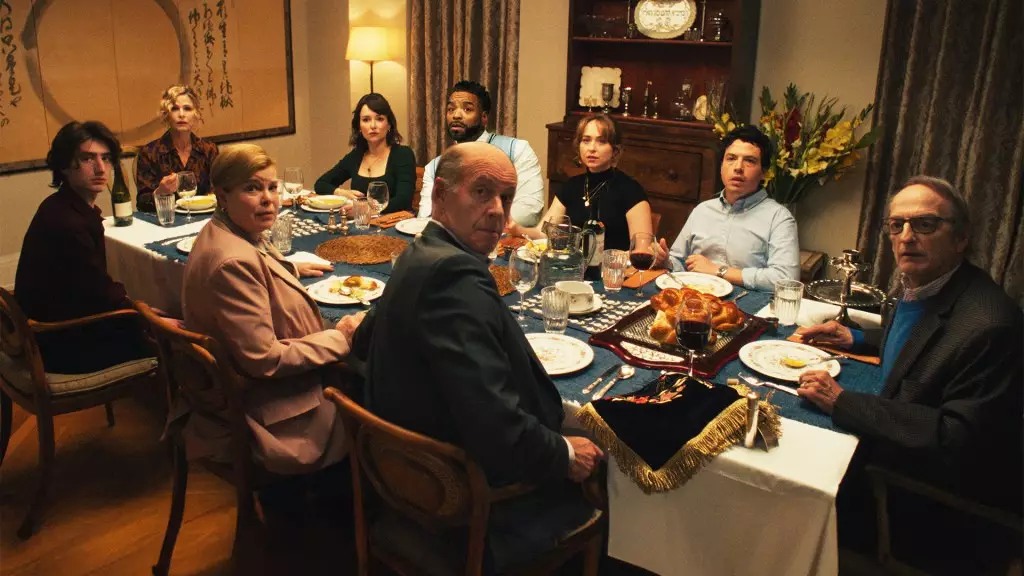In an era where blockbuster franchises often dominate the cinematic landscape, the steady rise of indie films like *Bad Shabbos* underscores a fundamental shift in how audiences consume meaningful, nuanced storytelling. While these films typically premiere on a modest number of screens, their capacity to generate significant word-of-mouth momentum exemplifies a resilient cultural appetite for diverse narratives. Such releases serve as a reminder that cinema’s vitality hinges not solely on mass appeal but on storytelling that resonates deeply with niche communities and discerning viewers. This organic growth model exemplifies a shift from commercial giants dictating cultural consumption toward a more democratized, inclusive film culture.
Challenging Hollywood’s Monoculture
The limited success and sustained theatrical presence of films like *Bad Shabbos* expose the shortcomings of Hollywood’s tendency to prioritize spectacle over substance. While mainstream cinema often relies on predictable formulas and homogenized content to ensure mass appeal, indie flicks tend to challenge viewers with complex characters, cultural specificity, and daring narratives. This movie, centered around an interfaith couple navigating a poignant yet humorous moment in their lives, resists reduction to mere entertainment; it becomes a platform for dialogue about faith, tradition, and modern relationships—a necessary counterpoint to Hollywood’s often superficial portrayals of identity and cultural conflict.
Authenticity as a Catalyst for Enduring Success
The enduring popularity of *Bad Shabbos* exemplifies how authenticity can serve as a vital weapon against the fleeting nature of pop culture trends. Its extended runs in cities like Boston, Los Angeles, and even new markets such as Washington, D.C. and Philadelphia illustrate a trust and loyalty cultivated through genuine storytelling rather than marketing gimmicks. This feedback loop—audiences connecting with authentic portrayals—fuels word-of-mouth promotion, which is far more potent than traditional advertising. It challenges the industry to reconsider the importance of genuine representation and storytelling that accurately reflects lived experiences, especially for marginalized communities.
Indie Films as Guardians of Cultural Conversation
Films like *Hundreds of Beavers* and *Secret Mall Apartment* demonstrate that indie cinema isn’t just about artistic experimentation; it’s about holding a mirror to society and pushing boundaries in ways that mainstream films often avoid. By opening eyes to supernatural parables, unconventional documentary storytelling, or quirky narratives, indie filmmakers foster dialogue on issues that mainstream media neglect. Their success—whether in dollars or cultural impact—advocates for a more inclusive and reflective media landscape that embraces complexity over simplicity. These films serve as cultural catalysts, ensuring diverse voices continue to be heard and stories preserved outside the commercial multiplex.
Recognizing Cultural Persistence Over Commercial Hype
While the headlines often emphasize box office figures, the real significance of indie successes lies beneath the surface. A film like *Bad Shabbos* earning over a million dollars and extending its run well into the fall illustrates a broader social truth: audiences crave authentic, relatable content that challenges the dominant narratives. This persistence counters the myth that commercial viability is solely rooted in blockbuster spectacle. In reality, it reflects a society eager for stories that mirror its complexities—faith, family, cultural identity, and everyday struggles. The continued theatrical presence of these films signifies a cultural resilience that commercial Hollywood struggles to replicate.
A Call for Industry Reflection and Cultural Courage
In recognizing the success of films like *Bad Shabbos*, industry stakeholders—including distributors, producers, and theaters—must confront uncomfortable truths about cultural representation and artistic stewardship. The concentration of screen time for blockbuster franchises often marginalizes genuinely compelling independent stories. Supporting indie films isn’t merely a financial decision; it’s an ethical one that affirms the importance of diverse perspectives. Such support guarantees cinema remains a vital forum for cultural dialogue, resisting homogenization and nurturing the creative courage necessary to confront difficult topics with nuance and authenticity. This is where the future of cinema truly resides: not in formulaic blockbusters that pander to the lowest common denominator, but in bold, authentic stories that challenge, energize, and inspire society to reflect critically on its values.

Leave a Reply